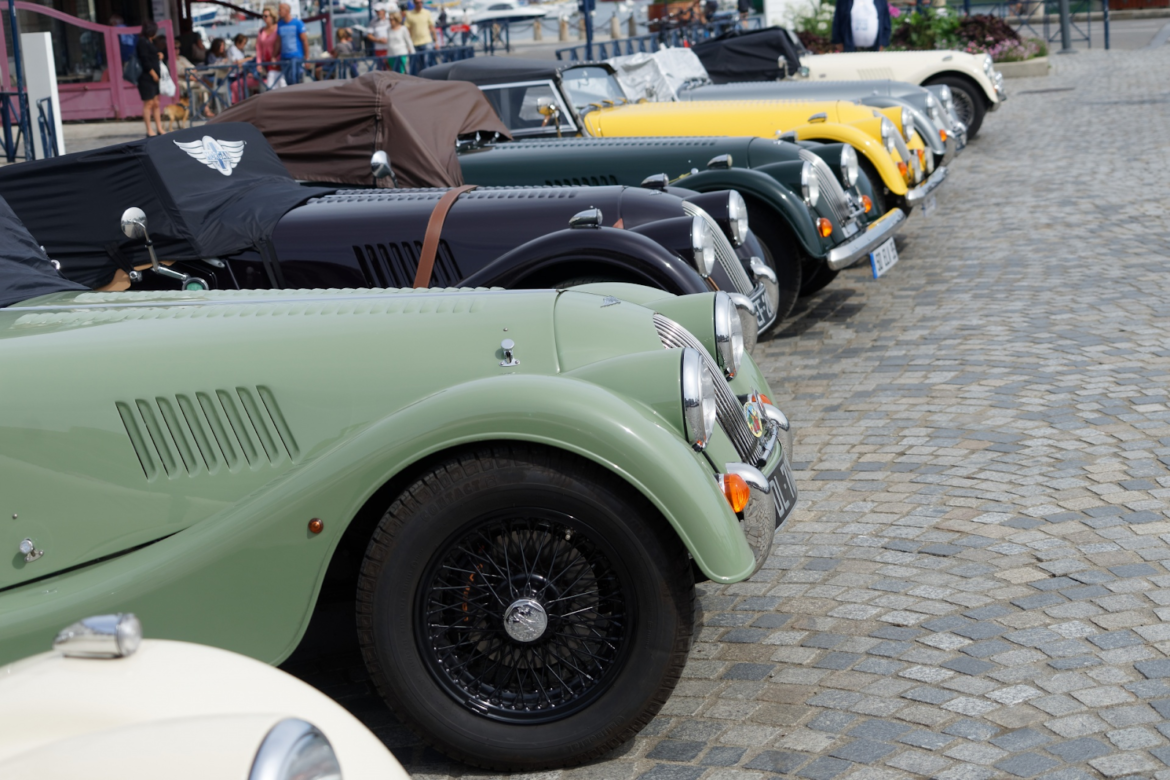 05 Sep
05 Sep Insurance for Classic Cars
- Posted by Car Guy
- 0 Comment(s)
Maintaining a classic car can be a rewarding pastime, but if you want to reap those rewards, you’ll have to take proper care of your vehicle. Part of that care includes getting specialized insurance for classic cars.
Reasons to Get Classic Car Auto Insurance
Having a classic car policy can save you from 20 to 40 percent on your insurance, as these policies recognize that you won’t be using your classic car as much as you would a regular vehicle. Even so, you’ll still get the coverage you would with a regular policy, such as comprehensive, liability, and collision.
In fact, having a standard insurance policy for your classic car may even lose you money. Over time, regular policies pay out less and less for accidents because they take vehicle depreciation as a given, when in fact classic cars tend to appreciate.
Classic car insurance policies also have specialized coverage designed for classic cars. If your classic car ends up needing towed or repaired, you’ll be glad you have this coverage.
Vehicles That May Require Classic Car Auto Insurance
Deciding whether your vehicle requires classic car auto insurance isn’t quite as straightforward as you might expect, as understandings of what constitutes a “classic car” vary from state to state. However, cars that are valued at more than their original selling prices tend to warrant this specialized insurance. These usually include:
- Antique cars
- Classic cars, trucks, and motorcycles
- Modified vehicles, such as hotrods
- Luxury and exotic vehicles
- Muscle cars
- Vintage military vehicles
- Antique tractors
If you’re not sure if your vehicle qualifies, speak with an auto insurance representative in your state — or multiple. Car age qualifications may even vary from one insurance agency to the next.
Requirements for Coverage
Once you’ve determined that your vehicle is old enough to qualify for classic car insurance, you still have a few more requirements to meet:
- Usage: You cannot use your classic car as your primary vehicle, or for daily commuting or errands. Most insurance policies won’t offer coverage to classic cars that exceed 5,000 miles annually.
- Car shows: Most classic car policies include limited use provisions that permit travelling to car shows and related meetings, but some do not. If you plan on attending many car shows, be sure to check a policy’s travel restrictions before purchasing; otherwise, you may have to obtain additional specialized coverage.
- Storage: If you want to qualify for classic car insurance, don’t even think about parking your car outside. You’ll need to have an allocated and safe spot in a garage. The strictest policies even prefer that you use a garage specifically intended for housing collectible vehicles.
- Driver background: When it comes to qualifying for classic car insurance, vehicles aren’t the only things with age restrictions. Drivers must be the age of majority in order to qualify as well as having clean driving histories.
Classic Car Insurance Policies
In addition to certain standard provisions you would find in a regular policy, such as bodily injury liability and property damage coverage, classic car insurance policies include some specialized coverage:
- Vehicle value: Classic car conditions vary widely, meaning that determining the value of a given classic car can be somewhat complicated. You and your insurance agent will have to come to an agreement as to the value of your vehicle, which your agent will then include in your policy. Depreciation doesn’t apply here, as classic cars usually increase in value over time rather than decrease. For that reason, you will want to update your coverage periodically to account for the appreciation.
- Repair and restoration: Taking your classic car to a standard repair shop might not make sense. Your classic car insurance policy should include provisions that allow you to take your vehicle to specialty shops, even if it’s much more expensive.
- Towing: Towing a classic car requires special care, and your policy’s towing coverage should reflect that.
- Spare parts: Spare parts can be costly and difficult to locate for classic cars, and especially engine, transmission, and wheel components. Your policy’s spare parts coverage should be higher to accommodate for these expenses.
For more information on how to properly care for your classic car, check out our blog posts on safety upgrades and keeping your classic car road-ready.
